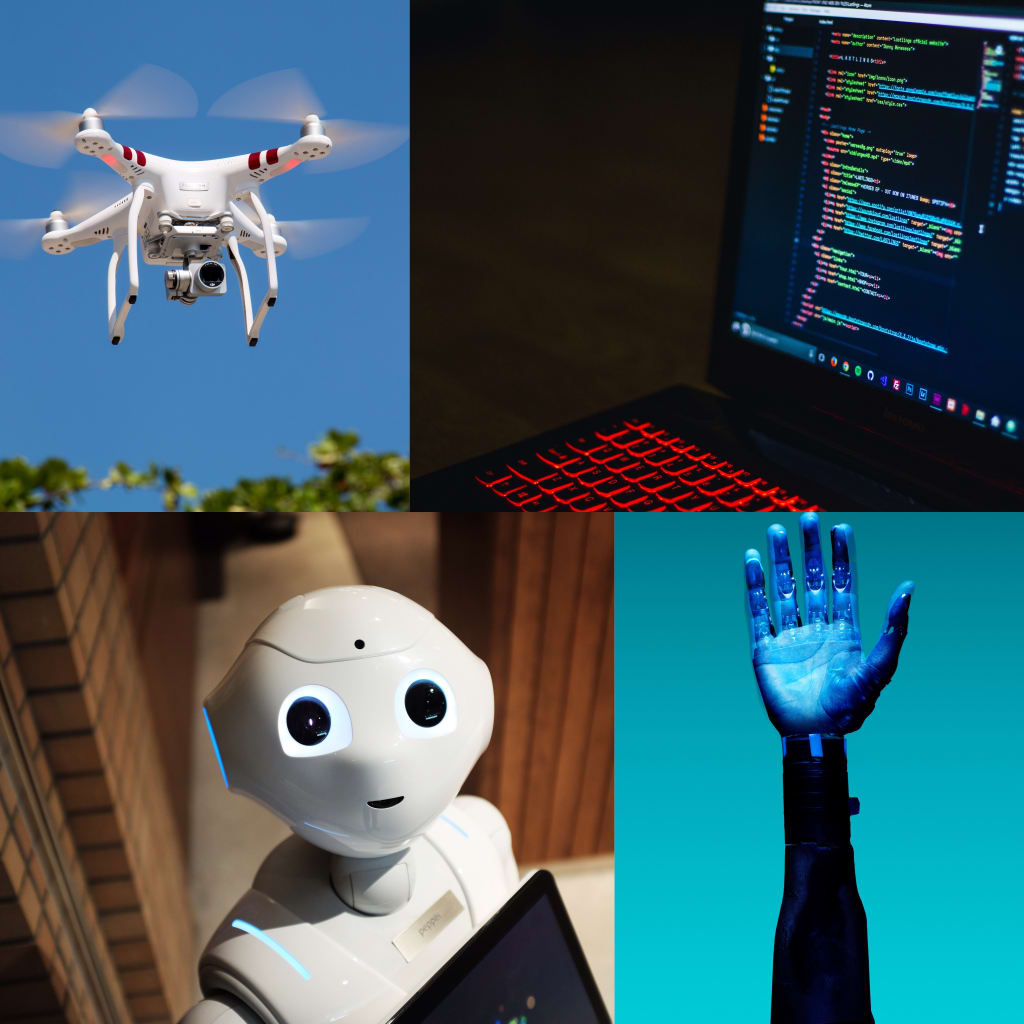
What is Artificial Intelligence?
Artificial Intelligence (AI) refers to the development and implementation of computer systems that can perform tasks and make decisions that typically require human intelligence. AI aims to replicate human cognitive abilities, such as learning, reasoning, problem-solving, perception, and language understanding, using algorithms and computational power.
AI systems are designed to analyze and interpret vast amounts of data, recognize patterns, and make predictions or take actions based on that analysis. They can adapt and learn from experience without explicit programming, allowing them to improve their performance over time.
Narrow AI and General AI:
Once upon a time, in a not-too-distant future, the world had advanced to a point where Artificial Intelligence (AI) had become an integral part of society. Among the various forms of AI, there were two distinct types: the General AI and the Narrow AI.
General AI was the pinnacle of technological achievement. It possessed human-level intelligence, capable of understanding and performing any intellectual task that a human could. Its capabilities extended across a wide range of domains, from mathematics and science to art and literature. General AI was autonomous, with the ability to think, reason, and make decisions independently. It had the potential to revolutionize industries, solve complex problems, and unlock unimaginable possibilities.
On the other hand, Narrow AI was more specialized in nature. It excelled in performing specific tasks within limited domains, such as image recognition, natural language processing, or data analysis. Narrow AI was designed to be highly efficient and focused, providing reliable solutions for specific challenges. It had limited or no ability to generalize beyond its designated area of expertise.
What is the purpose of artificial intelligence?
AI techniques include machine learning, where algorithms are trained on data to make predictions or take actions; natural language processing, which enables computers to understand and interact with human language; computer vision, which allows machines to interpret and analyze visual information; and robotics, which combines AI with mechanical systems to perform physical tasks.
The potential applications of AI are vast and span across numerous fields, including healthcare, finance, transportation, education, customer service, manufacturing, and more. AI has the ability to automate mundane tasks, improve efficiency, enhance decision-making, and provide innovative solutions to complex problems.
However, it's important to consider ethical implications and challenges associated with AI, such as biases in algorithms, privacy concerns, and the impact on the workforce. Responsible development and deployment of AI systems, with a focus on transparency, accountability, and fairness, are essential to ensure that AI technology benefits society as a whole.
The future possibilities of A.I:
Artificial Intelligence (AI) has made remarkable strides in recent years, revolutionizing industries and transforming the way we live and work. As we look to the future, the potential of AI continues to expand, offering unprecedented opportunities and posing intriguing challenges. In this article, we explore the exciting possibilities that lie ahead and the key areas where AI is poised to shape our future.
- Advancements in Machine Learning:
Machine learning, a subset of AI, has been a driving force behind recent breakthroughs. As algorithms become more sophisticated and capable of handling complex patterns and vast amounts of data, machine learning is set to revolutionize numerous fields. From healthcare and finance to transportation and manufacturing, AI-powered machine learning models will enable more accurate predictions, better decision-making, and enhanced automation.
- Human-Machine Collaboration
The future of AI is not about replacing humans; rather, it lies in collaboration between humans and intelligent machines. As AI systems become more capable, they will augment human abilities, making us more productive, efficient, and creative. AI-powered virtual assistants will provide personalized support, freeing humans to focus on complex problem-solving and innovation. Human-machine collaboration will redefine the nature of work, enabling us to achieve greater heights together.
- Enhanced Personalization and User Experience:
AI will continue to refine the user experience across various domains. Personalization will be at the forefront, as AI algorithms analyze vast amounts of user data to tailor products, services, and content to individual preferences. From personalized recommendations in e-commerce and streaming platforms to adaptive learning in education, AI will create more engaging and customized experiences, ultimately improving customer satisfaction and engagement.
- Autonomous Systems and Robotics:
Advances in AI are driving the development of autonomous systems and robotics. Self-driving cars, drones, and robots are already becoming a reality, with AI algorithms enabling them to navigate complex environments, make decisions, and interact with humans. The future will see further integration of AI into these systems, leading to safer transportation, efficient logistics, and intelligent automation in industries such as manufacturing, healthcare, and agriculture.
- Ethical and Responsible AI:
As AI becomes more prevalent, ensuring ethical and responsible development and deployment of AI systems becomes crucial. Addressing issues like bias, transparency, privacy, and accountability will be paramount. Striking the right balance between innovation and ethical considerations will require collaboration between governments, organizations, and technologists to establish frameworks and guidelines that safeguard human rights and values.
- AI for Social Good:
The future of AI holds immense potential for social good. AI can contribute to solving complex societal challenges, including healthcare diagnostics, poverty alleviation, environmental conservation, and disaster response. AI-powered technologies can enhance accessibility, bridge gaps in education, and improve healthcare outcomes. Leveraging AI ethically and inclusively will unlock opportunities to create a more equitable and sustainable world.
- Conclusion:
The future of AI is filled with immense possibilities. From advancing machine learning to fostering human-machine collaboration and enhancing personalization, AI will shape diverse aspects of our lives. Autonomous systems and robotics will revolutionize industries, while ethical considerations and responsible AI practices will guide its development. Ultimately, the true potential of AI lies in harnessing its power for social good, addressing global challenges, and creating a future that is intelligent, inclusive, and beneficial to all. By embracing AI's potential responsibly and ethically, we can shape a future where human intelligence and artificial intelligence harmoniously coexist, driving progress and improving lives.
About the Creator
Supsie M
Hi! I hope you can enjoy reading my articles, and thank you in advance for reading them! My favorite hobby includes reading a book in the comfort of my fluffy, comfy and warm blankets. Music is my therapy, on a gloomy day.






Comments
There are no comments for this story
Be the first to respond and start the conversation.